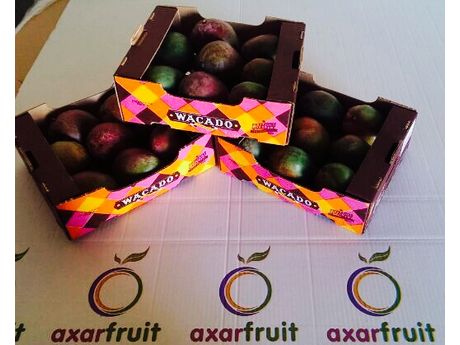 s currently marked by shortages, as Ivory Coast and Burkina Faso have already finished their campaigns, and although Mali is still exporting, its production volumes this year have been reduced due to excessive rainfall and other weather conditions that took place in the production areas. "The few mangoes coming from Mali do not meet the necessary quality standards and many are discarded due to anthracnose," explains Alvaro Martínez, manager of Axarfruit.
s currently marked by shortages, as Ivory Coast and Burkina Faso have already finished their campaigns, and although Mali is still exporting, its production volumes this year have been reduced due to excessive rainfall and other weather conditions that took place in the production areas. "The few mangoes coming from Mali do not meet the necessary quality standards and many are discarded due to anthracnose," explains Alvaro Martínez, manager of Axarfruit.However, "the mangoes arriving at the moment from Senegal are of extraordinary quality, to which the relatively short shipping times also contribute; in our case, between 8 and 10 days."
Álvaro expects shortages for 15 or 20 days, and possibly prices will rebound, because "right now prices do not fully reflect the shortages in the market."
Through collaboration with a partner in Senegal, Axarfruit runs its own plantations in the African country, all of which are certified by Global GAP and soon also for organic production.
"Around 80% of the mangoes we import from Senegal are Kent, but we also work with Keitt and Sensation. Our goal is to obtain organic mangoes throughout the campaign, with their corresponding certificate. The mangoes we are currently selling are not yet organic, as far as certificates go, although due to the infrastructures available in the country, practically no pesticides or fertilisers are used. Mango is cultivated in Senegal in a very traditional way."
Sold under the WACADO brand, Axarfruit's mangoes are packaged in 4 kilo boxes and are mostly intended for Europe's export markets.





